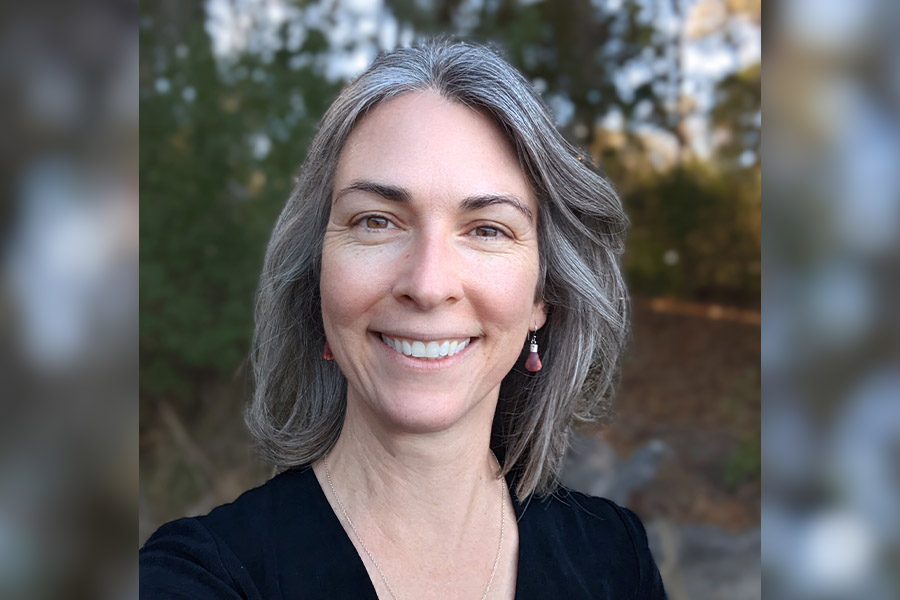FSU biological scientist named president-elect of Animal Behavior Society

A Florida State University biologist has been named president-elect of the Animal Behavior Society, a prominent professional organization that advances research and education in the field of animal behavior.
Professor of Biological Science Emily DuVal will take over as president in 2026.
“I’m humbled and inspired by this election,” DuVal said. “Being president of the ABS is a huge responsibility, and I’m honored my colleagues chose to entrust me with this.”
Instead of electing officials to serve for one or two years, the society staggers responsibilities to ensure everyone is equipped to tackle the challenges of their respective positions, she said.
“I have no doubt that I’ll learn so much from this experience,” DuVal said. “The ABS leadership plan supports the development of management skills in their elected officials and creates continuity among generations of leadership, for which I’m extremely grateful.”
The ABS was established in 1965 and is composed of 2,000 scientists from universities and institutions worldwide investigating how and why animals behave in particular ways. The ABS also edits the scientific journal Animal Behaviour, hosts major conferences each year, provides thousands in competitive grants to support student research and recognizes major contributions to the field through a series of elite research awards.
“Emily has displayed great leadership qualities during her time at Florida State and has clearly done the same during her participation with the Animal Behavior Society,” said Sam Huckaba, dean of the College of Arts and Sciences. “Being elected president by her peers is a great honor and one that illuminates the excellence of the Department of Biological Science and the College of Arts and Sciences.”
DuVal is an animal ecology and evolution expert who specializes in the evolution of complex social behavior in wild birds, such as their courtship and mating processes. The DuVal Lab studies cooperation and mate choice of lance-tailed manakins in the tropical forests of Panama as well as nuthatches in the longleaf forest of the Tallahassee area.
“With the goal of understanding what factors influence complex social behavior and partnership stability in these birds, we study why subordinate, non-breeding males help others court females or raise offspring,” DuVal said. “We study how alliances form, and what the dominant breeders gain from these partnerships. We’re also studying how changing social and environmental contexts can change individual decisions to help others or breed independently.”
Over the years, three students from the DuVal Lab have been awarded the Charles Henry Turner Award from the Animal Behavior Society, which allows undergraduate researchers from a competitive pool of applicants to present their research at the annual ABS conference, participate in workshops and make connections with scientists working in different areas of the field. Most recently, spring 2022 graduate Yousi Espanol-Rincon presented her honors thesis — investigating effects of maternal care in green lynx spiders — at the ABS conference in Costa Rica this past July.
Doctoral candidates in the Department of Biological Science also benefit from the support of the ABS through substantive research grants as well as detailed feedback on proposals from experienced researchers in their fields.
“I’m very excited to be an even bigger part of all the great things that the ABS does at the national and international levels,” DuVal said. “I’ve seen firsthand how programs and grants provided by the society expand students’ perspectives on science as a career, build their confidence in interacting with professionals in the field and contribute to general life skills such as communication. I’m proud to be part of an organization that does so much to support and promote behavioral research at all career stages.”
